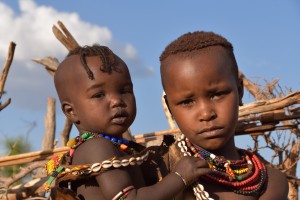
Addis Ababa/New York: After Syria, Myanmar, Yemen, and Afghanistan, Ethiopia is fast turning out to be another embarrassment for the United Nations, which is still struggling to find a proper narrative to explain the expulsion of its seven staff from the country.
“We’re continuing to have contact with Ethiopian authorities at different levels…,” Stéphane Dujarric, Spokesman for the UN Secretary-General, said.
None of the seven UN staff named by the Ethiopian Government is in the country at present. They have been moved from the country to ensure their safety.
Dujarric sounded resolute when he said that the UN’s position on the declaration of persona non grata status has not changed. “It is the long‑standing legal position of the Organization not to accept the application of this doctrine of persona non grata with respect to United Nations officials. And as we’ve said, this is a doctrine that applies to diplomatic agents accredited by one State to another State,” he said.
To a question on why the UN backed down and took its people out of the country if it was so sure about its legal position, Dujarric clarified that it wanted to be sure of the safety of its staff. “As you know, it… where our staff are deployed, it is depend… we depend upon the national authorities to ensure their safety. If there’s something that calls into question that, we’d have to respond accordingly,” he explained.
Also read:
- Guterres shocked by expulsion of UN staff from Ethiopia
- In face of worsening situation, Ethiopia allows UN agencies to move to Tigray
- US slaps sanctions on Ethiopian leaders, Hizballah and IRGC-QF funders
He stressed that despite all odds, the UN humanitarian operations were continuing. Yet he acknowledged the difficulties as he candidly conceded that in fact the UN operations were “kind of struggling to continue, given the impediments that we face”. The UN stated that since August 2021, the World Food Programme had delivered food to nearly 300,000 people impacted by the spread of conflict from Tigray into the Afar and Amhara regions.
WFP now says that aid distributions in Tigray are lagging behind due to impediments to the movement of supplies. It says anecdotal reports from Tigray, Afar and Amhara provinces suggest that food insecurity is rising as families flee from their homes and have their livelihoods destroyed.
The Rome-based agency stressed that it is absolutely vital that it has the full cooperation and support of all parties to the conflict so that it can reach all affected populations with urgently needed food assistance before we have a humanitarian catastrophe on our hands across all of northern Ethiopia.
The humanitarian crisis in Tigray remains dire, with 5.2 million people needing food aid, including 400,000 people living in famine‑like conditions. The spread of conflict into the Amhara and Afar regions is pushing more people into desperate conditions.
Since 12 July, the UN has brought in 606 trucks of humanitarian supplies – but it needs 100 trucks to carry aid into Tigray every day.
The UN has not been allowed to bring in fuel since the end of July, leading to some of our partners having had to severely reduce or suspend their activities. Cash to run operations is also running out. Medical supplies are depleted, with nearly 200,000 children having missed critical vaccinations. The UN is engaging with the Government of Ethiopia for sustained and regular access for aid convoys.
Meanwhile, in Amhara, fighting along the Tigray regional boundary has led to hundreds of thousands of people being displaced. People in some areas reportedly do not have access to aid or basic services including electricity, water and telecommunications.
In Afar, it is estimated that hundreds of thousands of people are directly affected by the conflict, including several tens of thousands of people who have been displaced and are in need of urgent assistance. Our humanitarian partners continue to scale up their response in both Amhara and Afar.
The UN has urged all parties to the conflict to ensure that aid can reach all civilians in need. Without a ceasefire, it says, humanitarian needs will continue to grow and there will be no way to sustainably address the suffering in Tigray, Amhara and Afar.
– global bihari bureau





